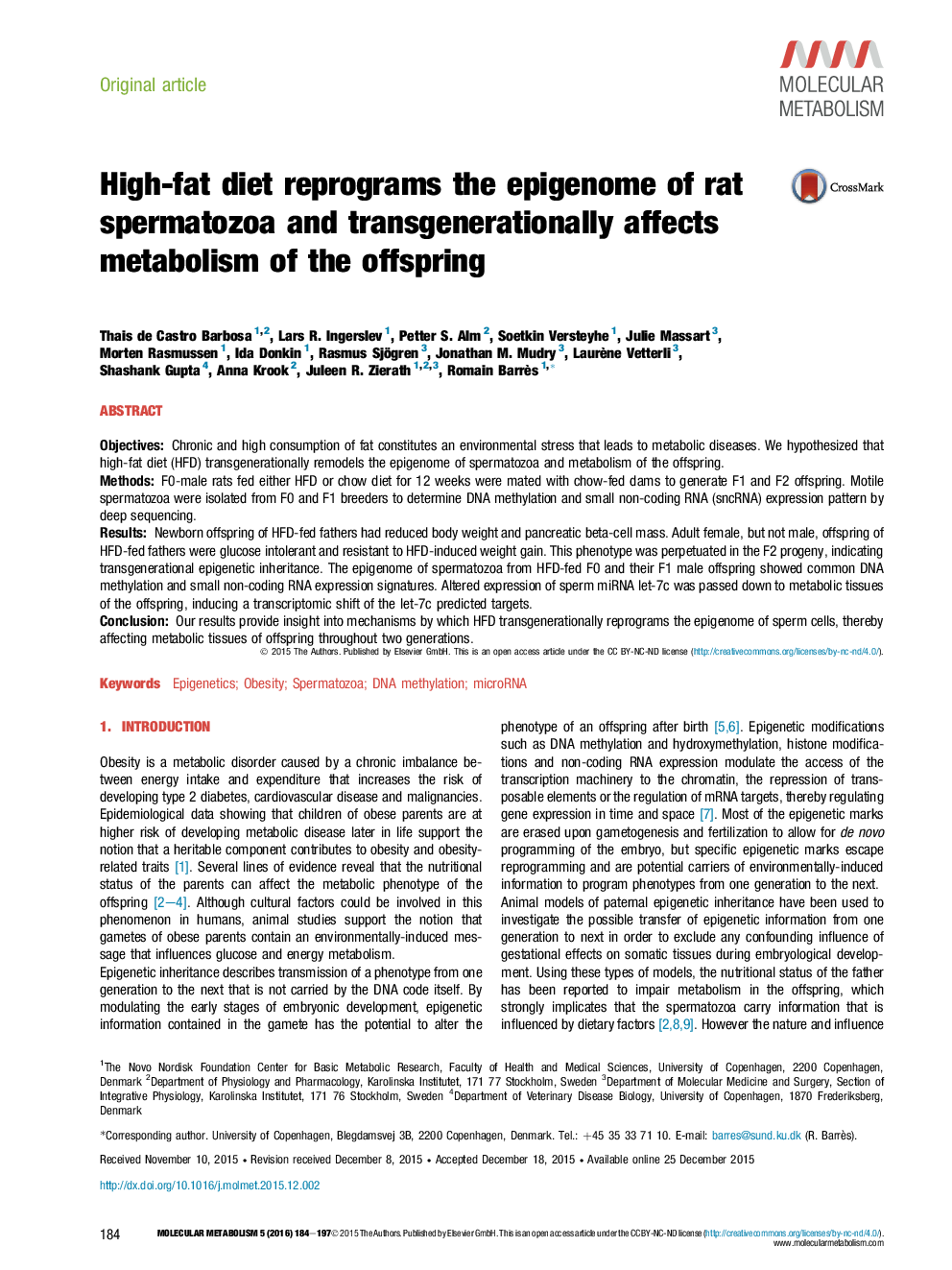| Article ID | Journal | Published Year | Pages | File Type |
|---|---|---|---|---|
| 3001583 | Molecular Metabolism | 2016 | 14 Pages |
•Body weight and glucose metabolism are altered in F1 and F2 offspring of F0-HFD fathers.•High-fat diet reprograms the epigenome of sperm cells.•Spermatozoa from F0-HFD fathers and F1 offspring share common epigenetic signatures.•Expression of let-7c is changed in sperm of founders and in the adipose tissue of the offspring.
ObjectivesChronic and high consumption of fat constitutes an environmental stress that leads to metabolic diseases. We hypothesized that high-fat diet (HFD) transgenerationally remodels the epigenome of spermatozoa and metabolism of the offspring.MethodsF0-male rats fed either HFD or chow diet for 12 weeks were mated with chow-fed dams to generate F1 and F2 offspring. Motile spermatozoa were isolated from F0 and F1 breeders to determine DNA methylation and small non-coding RNA (sncRNA) expression pattern by deep sequencing.ResultsNewborn offspring of HFD-fed fathers had reduced body weight and pancreatic beta-cell mass. Adult female, but not male, offspring of HFD-fed fathers were glucose intolerant and resistant to HFD-induced weight gain. This phenotype was perpetuated in the F2 progeny, indicating transgenerational epigenetic inheritance. The epigenome of spermatozoa from HFD-fed F0 and their F1 male offspring showed common DNA methylation and small non-coding RNA expression signatures. Altered expression of sperm miRNA let-7c was passed down to metabolic tissues of the offspring, inducing a transcriptomic shift of the let-7c predicted targets.ConclusionOur results provide insight into mechanisms by which HFD transgenerationally reprograms the epigenome of sperm cells, thereby affecting metabolic tissues of offspring throughout two generations.
